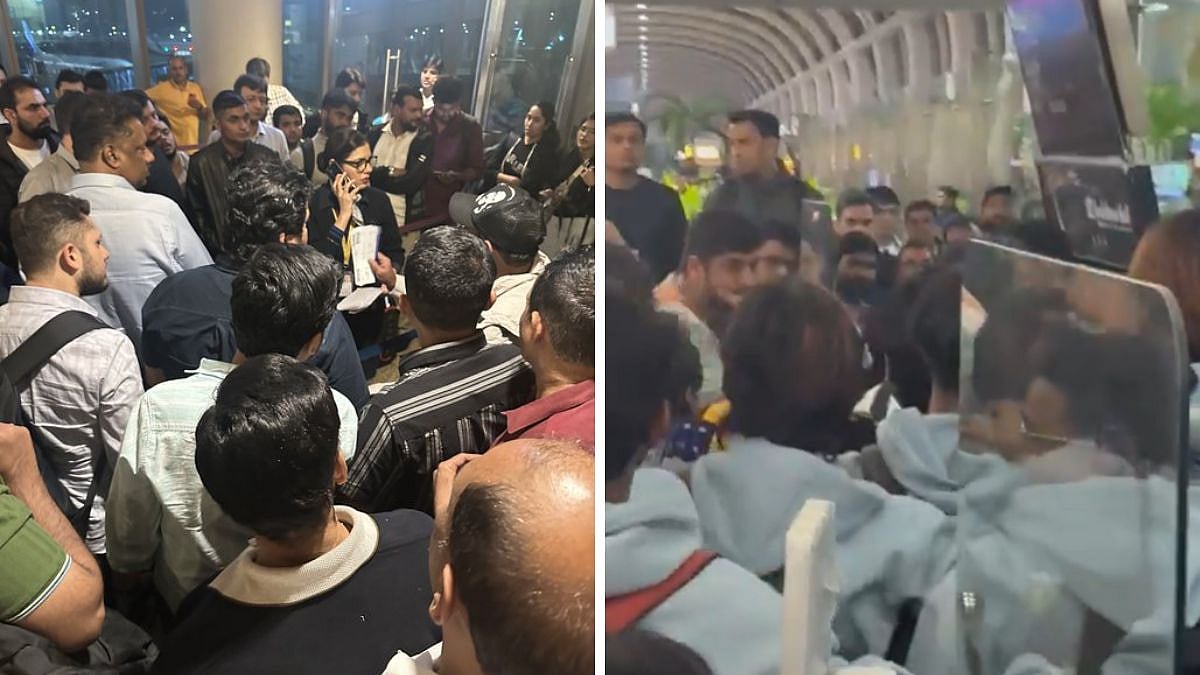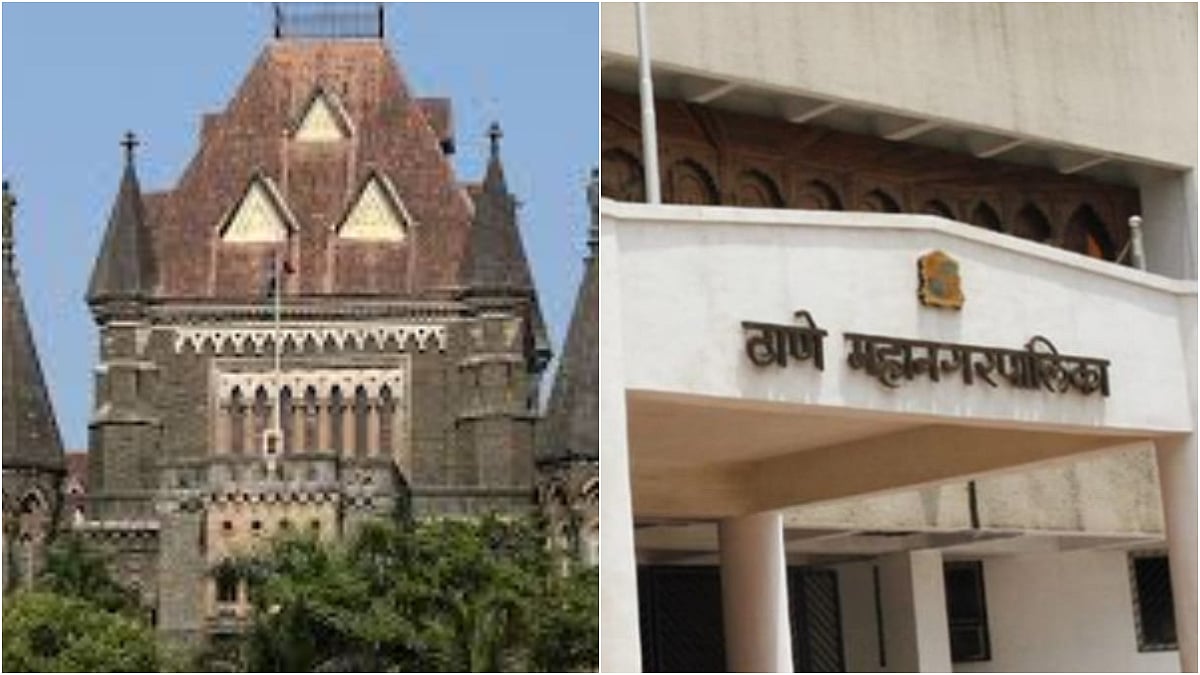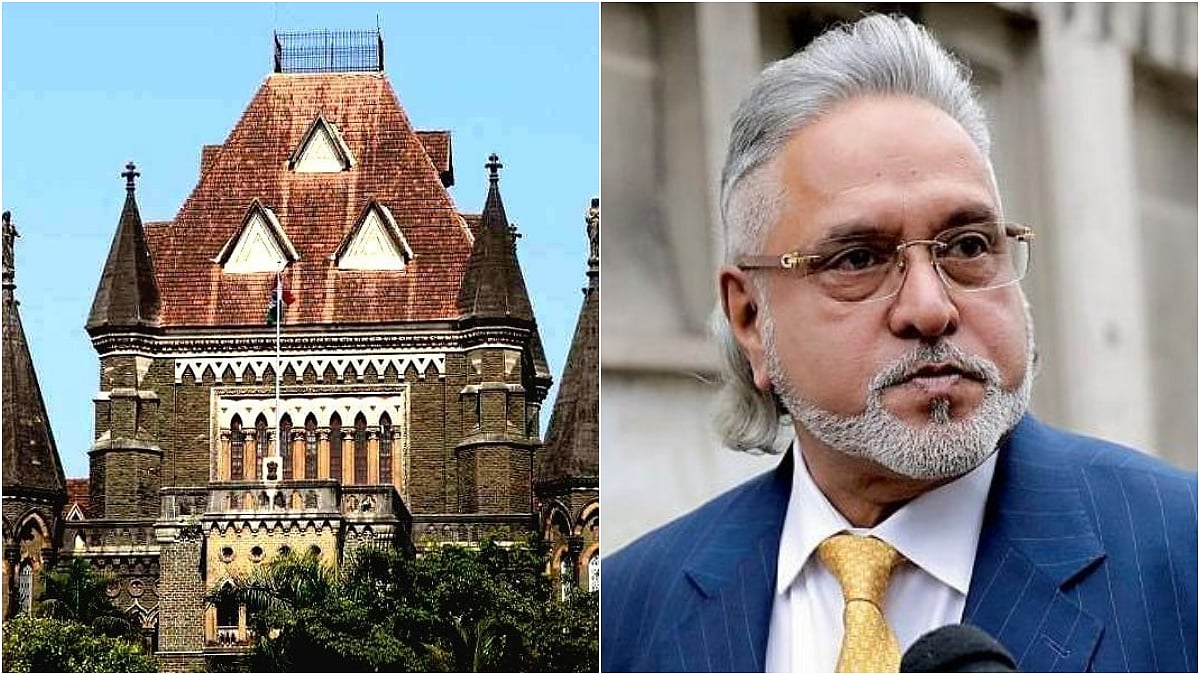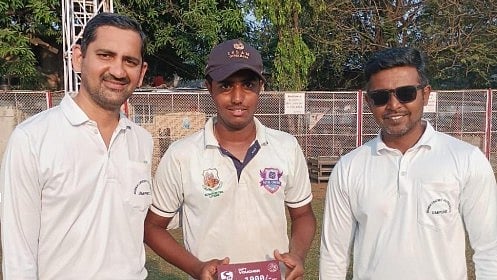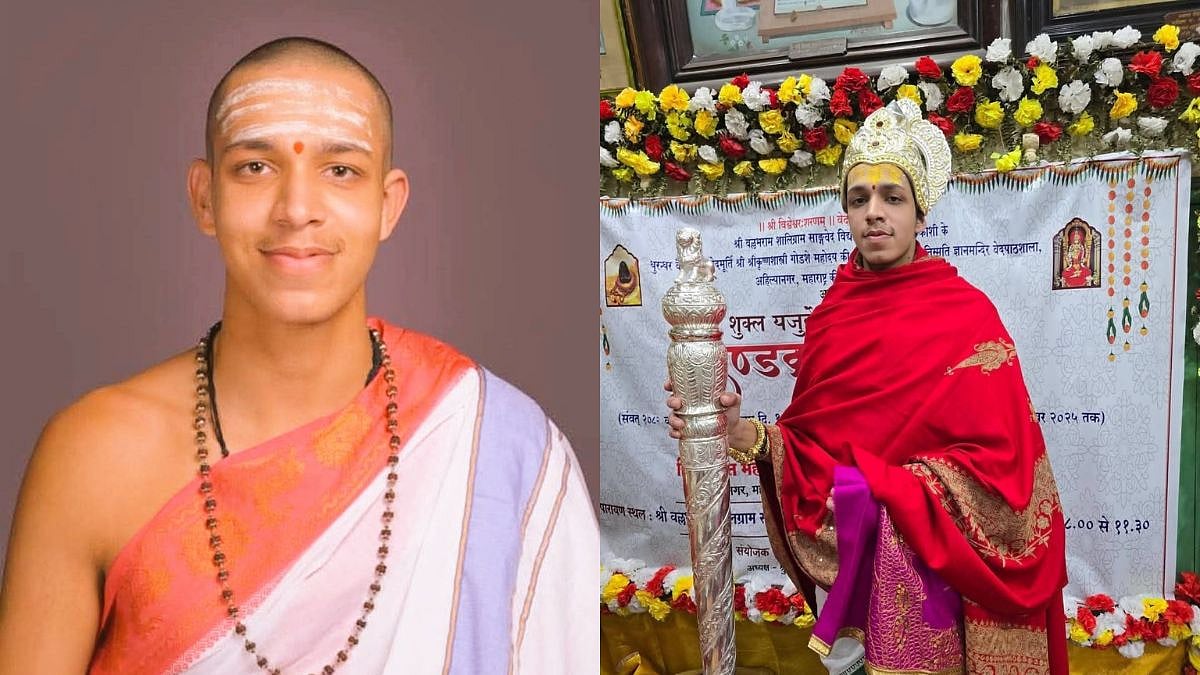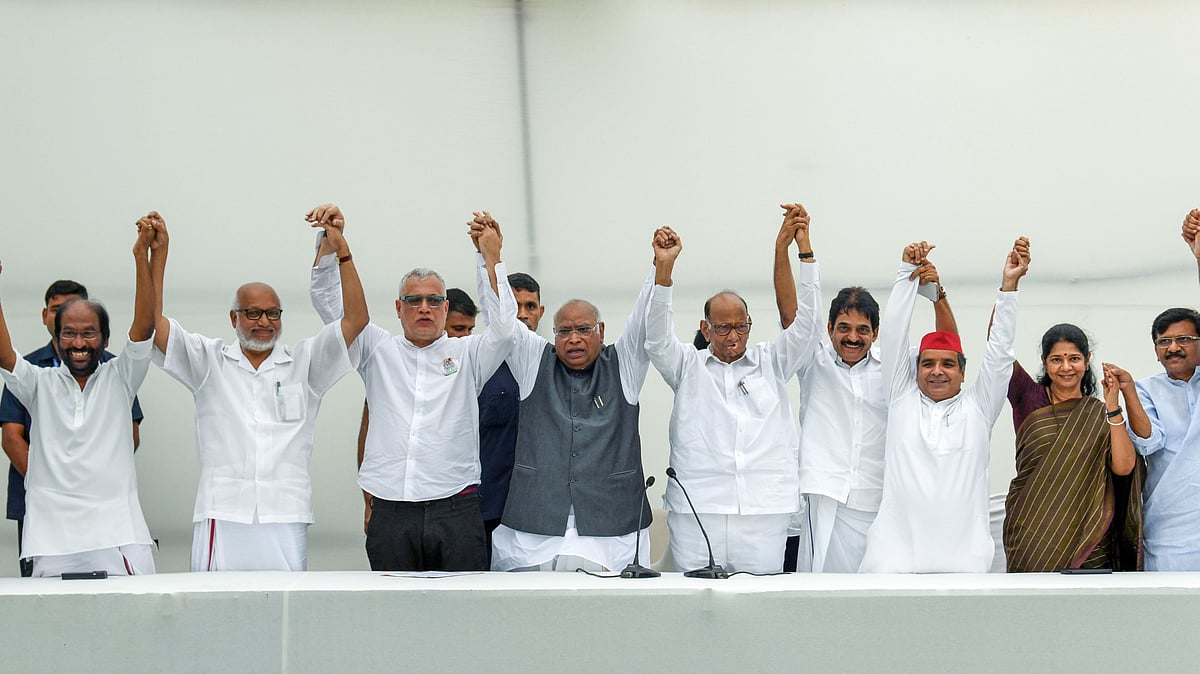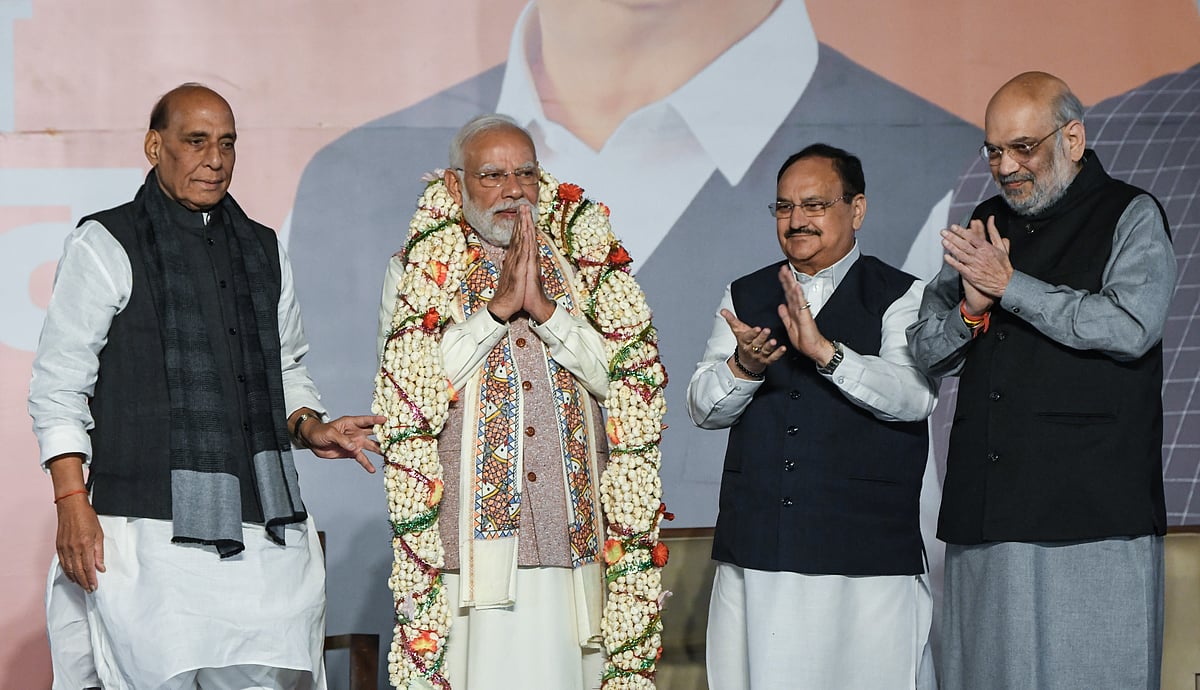Politics and law are two sides of the same coin because politicians enact laws when they are in power and break the law when they are out-of-power. This is why the ruling Shiv Sena-NCP-Congress calling for a bandh throughout Maharashtra on Monday will go down in history because governments rarely call for bandhs where they rule. Political parties call for bandhs when they are in the opposition or fail-to-rule to fuel their ambition to return-to-rule.
Perhaps, the late advocate-general of the Bombay high court, Ramrao Adik, who was also the Maharashtra deputy chief minister in 1984, was a prime example of this axiom because he himself admitted he sat in the bar room of the appellate side of the Bombay high court when he lost the elections and returned to the legislative assembly when he won the elections.
After his death in 2007, he was honoured with a full court reference notwithstanding the contretemps which allegedly cost him the deputy chief ministership 37 years ago because he allegedly misbehaved in an airplane after downing one-too-many, according to well-documented media reports.
Despite this adverse publicity, Adik was greeted with a 100-strong cheering crowd and a brass band which must have been protected under the right to protest peacefully and without weapons guaranteed under Article 19 (1) (b). After all, the brass band and the 100-strong cheering crowd did not disrupt public order and the Noise Pollution Act came into force two years later.
Narayan Rane episode
In August, Union Minister Narayan Rane was arrested for allegedly threatening to slap Chief Minister Uddhav Thackeray because of the latter’s query related to the year of India’s Independence during his public speech. “Had I been there, I would have given him a tight slap,” was what culminated in four FIRs against Rane.
The row which broke out following Rane’s arrest could never be termed a peaceful protest guaranteed under Article 19 (1) (b) unlike the brass band which was collected to cheer the late Ramrao Adik. The Supreme Court has iterated time-and-again that this fundamental right of protest against any perceived unjust law like the Citizenship (Amendment) Act, 2019, can only be circumscribed by ensuring public order is not disrupted, which again is a vital defence under the sedition law.
The Supreme Court has opined sedition is an archaic repression of the right to free speech which should be struck down. This evoked applause from the likes of the fiery Trinamool Congress MP, Mahua Moitra, and her briery counterpart in the Congress, MP Rahul Gandhi, who have both exercised their right to protest under Article 19 (1) (a) and (b) both within Parliament and outside, in support of the farmers’ right to protest.
The jurisdiction of the Supreme Court is replaced within the Rajya Sabha by Vice President M Venkaiah Naidu, who like our President, Ram Nath Kovind, is an adept lawyer-cum-politician proving the axiom that it is distinguished politicians who enact the law when they come to power.
Keeping House in order
For the Speaker of the Rajya Sabha is on a par with the Chief Justice of India because it is the former who regulates the procedure of the House when it is in session and it is he who has to call the marshals to escort unruly members outside the House when their right to protest under Article 19 (1) (b) disrupts the order prevailing within the House.
There is no doubt that the Shiv Sena’s call for a state-wide bandh needs to be applauded because Ashish Mishra, who is the son of Union Minister Ajay Mishra, has even produced affidavits from witnesses and videos claiming he was elsewhere when the jeep mowed down four farmers. The UP law minister, Brijesh Pathak, visited the area on Wednesday but did not visit the families of the bereaved farmers, proving the dictum that Uttar Pradesh is the ‘Ulta’ Pradesh of India as far as law and order is concerned.
This is why power is as intoxicating as the drugs which actors like Arbaaz Merchantt and Aryan Khan have been accused of ingesting. Never mind the arguments of seasoned advocates like Amit Desai who claimed no drugs were recovered from the body of Aryan Khan.
Show of support
Now the right to protest, which merged with the right to publicity under Article 19 (1) (a) of the Bollywood fraternity, was vociferously exercised by those who rallied around the Badshah of Bollywood, Shah Rukh Khan, to allege that Aryan Khan was being framed. Just as others have rallied around the son of the Union minister who has now been arrested.
But to return to the point, Justice Madan Lokur has explained that the right to protest is a fundamental right in a democracy which cannot be negated just because the Supreme Court has set up a committee to study why the farmers have opposed the three contentious farm laws. But Justice Lokur is speaking ex-cathedra which means he spoke in public after demitting office, so what he says no longer has the force of law.
Justice Lokur pointed out the Supreme Court has expressed contradictory views on the right to protest against a law while it is being debated in court. But the prevailing view of the Supreme Court is: the government cannot stifle the peaceful right of the farmers (or other citizens) to protest against what they perceive to be corporatisation of Indian agriculture.
Fundamental right
On January 12, a two-judge bench of the Supreme Court stated the right to protest is a fundamental right in a democracy. More so, when the farmers fear loss of income, more indebtedness, and the surrogate role of corporate giants which will replace alleged government apathy to their irregular income.
In a landmark judgment given by the Supreme Court in 2011 on the incident that took place on the midnight of June 4-5, 2011 at Ramlila Maidan at Delhi where Baba Ramdev and his supporters were carrying on a protest against corruption and black money, the Supreme Court observed their protest was peaceful and therefore perfectly legal.
The Supreme Court observed satyagraha was the essence of democracy because it was non-violent and its force lay in truth and the ability to struggle for it. Hence, the right to peacefully assemble and demonstrate with dharnas was a basic feature of democracy. People in a democracy had a right to protest against perceived unjust government laws or to express their opinion on any subject of national importance.
Unreasonable restrictions
The judges said a recent trend (of the government) was the use of police to stop the people from assembling peacefully to protest. The judges observed police were used to declare that the size of the crowd in the Baba Ramdev case must be small. Consequently, the decision to forcibly evict people sleeping at the Ramlila Maidan in New Delhi during the midnight of June 4-5, 2011, was arbitrary, an abuse of power and improper.
So, the right to protest against unjust laws and the murder of innocent farmers will continue to remain a fundamental right even if such protests are regulated by unreasonable restrictions, making the right to protest itself a farce.
The writer holds a PhD in law and is a senior journalist-cum-advocate of the Bombay high court

